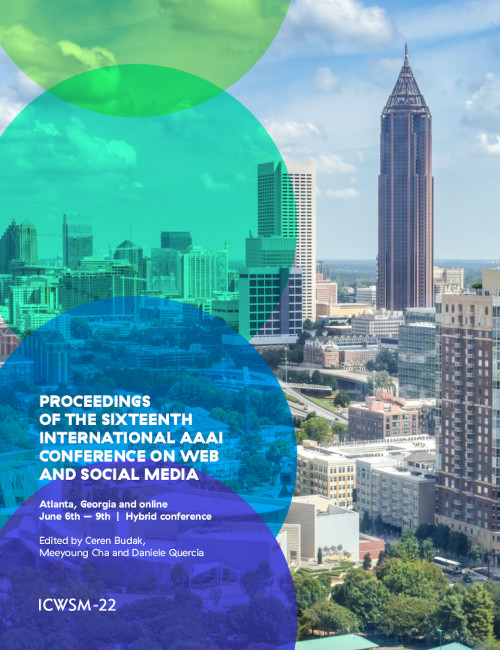Analysis of the Influence of Political Polarization in the Vaccination Stance: The Brazilian COVID-19 Scenario
DOI:
https://doi.org/10.1609/icwsm.v16i1.19281Keywords:
Subjectivity in textual data; sentiment analysis; polarity/opinion identification and extraction, linguistic analyses of social media behavior, Social network analysis; communities identification; expertise and authority discovery, Text categorization; topic recognition; demographic/gender/age identification, Psychological, personality-based and ethnographic studies of social mediaAbstract
The outbreak of COVID‐19 had a huge global impact, and non-scientific beliefs and political polarization have significantly influenced the population's behavior. In this context, COVID vaccines were made available at an unprecedented time, but a high level of hesitance has been observed that can undermine community immunization. Traditionally, anti-vaccination attitudes are more related to conspiratorial thinking than political bias. In Brazil, a country with an exemplar tradition in large-scale vaccination programs, all COVID-related topics have also been discussed under a strong political bias. In this paper, we use a multi-dimensional analysis framework to understand if anti/pro-vaccination stances expressed by Brazilians in social media are influenced by political polarization. The analysis framework incorporates techniques to automatically infer from users their political orientation, topic modeling to discover their concerns, network analysis to characterize their social behavior, and the characterization of information sources and external influence. Our main findings confirm that anti/pro-stances are biased by political polarization, right and left, respectively. While a significant proportion of pro-vaxxers display haste for an immunization program and criticize the government's actions, the anti-vaxxers distrust a vaccine developed in a record time. Anti-vaccination stance is also related to prejudice against China (anti-sinovaxxers), revealing conspiratorial theories related to communism. All groups display an ``echo chamber" behavior, revealing they are not open to distinct views.Downloads
Published
2022-05-31
How to Cite
Ebeling, R., Saenz, C. A. C., Nobre, J. C., & Becker, K. (2022). Analysis of the Influence of Political Polarization in the Vaccination Stance: The Brazilian COVID-19 Scenario. Proceedings of the International AAAI Conference on Web and Social Media, 16(1), 159-170. https://doi.org/10.1609/icwsm.v16i1.19281
Issue
Section
Full Papers

